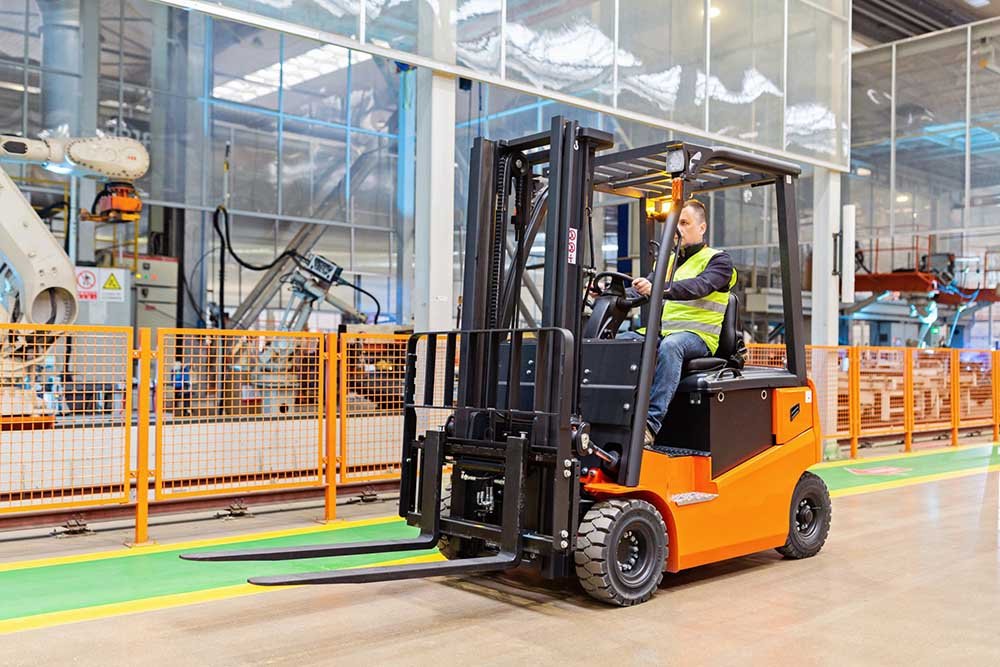In the fast-paced world of logistics and warehousing, forklifts play a pivotal role in material handling and ensuring the smooth flow of operations. Forklifts are invaluable assets for any business relying on heavy lifting and efficient material transport. However, like any machinery, forklifts require proper repair and timely maintenance to ensure they function optimally and have an extended lifespan. Here we are discussing about the benefits of forklift repair that can help us to maxuimising the lifespan of forklift.
Table of Contents
The Importance of Forklift Maintenance and Repairs
Ensuring Safety
Safety should always be the paramount concern in any industrial setting. Regular maintenance and effective repairs contribute significantly to forklift safety. Neglected forklifts are prone to accidents, which can result in injuries, damage to property, and costly downtime.According to the Occupational Safety and Health Administration (OSHA), forklift accidents result in approximately 85 fatal injuries and 34,900 serious non-fatal injuries in the United States each year. Regular maintenance and repairs can significantly reduce these numbers.
Cost Savings
Neglecting forklift maintenance and postponing repairs might seem like a cost-saving strategy in the short term. However, in the long run, it can lead to higher expenses. Data shows that forklifts that receive regular maintenance and timely repairs have a lower total cost of ownership (TCO) compared to those that are not adequately maintained. The TCO includes initial purchase costs, fuel, maintenance, repairs, and eventual replacement.
Forklift Maintenance Best Practices
To maximize the lifespan of your forklift and reap the benefits of safety and cost savings, follow these best practices:
Regular Inspections
Perform daily pre-shift inspections to identify any visible issues or anomalies. Regular inspections can help catch problems early, preventing them from escalating into costly repairs.
Scheduled Maintenance
Create a maintenance schedule that includes routine tasks such as oil changes, filter replacements, and brake inspections. Adhering to a schedule ensures that maintenance is not overlooked.
Proper Training
Ensure that your forklift operators are trained in basic maintenance tasks and can recognize early signs of problems. This empowers them to report issues promptly.
Genuine Parts
Always use genuine manufacturer-approved parts for repairs. Substituting with inferior or aftermarket parts can lead to more significant issues down the line.
Forklift Repairs: When and How
Recognizing the Need for Repairs
Timely identification of repair needs is crucial. Some common signs that a forklift requires repair include unusual noises, decreased performance, fluid leaks, and erratic handling.
DIY vs. Professional Repairs
While minor maintenance tasks can be performed by trained operators, major repairs should always be entrusted to certified technicians. Attempting complex repairs without proper expertise can worsen the problem and increase costs.
Preventive vs. Reactive Repairs
Opt for preventive maintenance and repairs whenever possible. Reactive repairs, addressing issues only when they cause a breakdown, can be more expensive and lead to downtime.
Extending Forklift Lifespan: Unique Insights

Telematics and Predictive Maintenance
The integration of telematics systems in forklifts has revolutionized maintenance. These systems collect data on forklift performance, allowing for predictive maintenance. Predictive maintenance enables you to address issues before they cause breakdowns, increasing lifespan and reducing downtime.
Battery Maintenance
Battery-powered forklifts require special attention to their batteries. Implement a battery maintenance program that includes regular inspections, proper charging practices, and the replacement of worn-out batteries.
Environment Matters
The environment in which forklifts operate can significantly impact their lifespan. Extreme temperatures, exposure to corrosive substances, and rough terrain can all accelerate wear and tear. Adapt your maintenance practices to suit the specific conditions your forklifts operate in.
Conclusion
Maximizing the lifespan of your forklift through effective repairs is not just a cost-saving measure; it’s an investment in safety, productivity, and long-term operational efficiency. Regular maintenance, timely repairs, and the integration of modern technologies like Forklift Repair in Aurora, IL can help you get the most out of your forklift fleet. Prioritize safety, stay proactive, and adhere to manufacturer recommendations to ensure your forklifts serve your business reliably for years to come.
Remember, the true cost of neglecting forklift maintenance and repairs extends far beyond the immediate expenses; it can affect your bottom line and the safety of your workforce. Make informed decisions, and your forklifts will repay you with years of dependable service.










